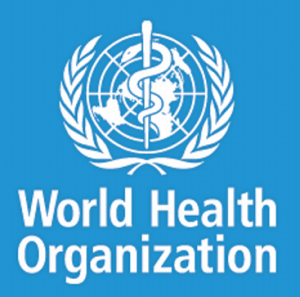WHO gets $4,400m budget support
 In spite of the indifference expressed by civil society groups against the endorsement of the World Health Organisation (WHO) Secretariat’s biennium budget proposal for 2016-2017, delegates overwhelmingly approved it.
In spite of the indifference expressed by civil society groups against the endorsement of the World Health Organisation (WHO) Secretariat’s biennium budget proposal for 2016-2017, delegates overwhelmingly approved it.
The proposed biennium amounts to nearly $4,400 million overall, which comprises the base programmes for the various projects and interventions WHO deemed appropriate to undertake.
These include base programmes of categories one to six, plus polio, special programmes for research, training in tropical diseases, development and research training in human reproduction, as well as event-driven component of outbreaks and crisis response.
The breakdown constitutes a five per cent on the assessed contribution and voluntary contribution, an equivalent of eight percent on the increase over the biennium for 2014–2015.
It was based on realistic and rigorous calculation of funds needed to support the workload, according to the Secretariat.
Basically, WHO derives funding opportunities from two main resources, through assessed mandatory contributions and voluntary contributions through benevolence.
Though majority of member-states supported the proposal with fewer dissenting voices, they were whipped into line through dialogue and compromise for the approval.
Dr Margaret Chan, Director-General of WHO explained that the enormity of the challenges of the Organisation including reckoning the unpreparedness of the Ebola outbreak in addition to pursuing reforms to better the lot for mankind, necessitated the proposal for the five per cent increase for assessed and eight per cent for voluntary contributions.
She acknowledged the diverse and broad mandate of WHO and consequently, its complex funding needs and commended delegates for giving approval to the biennium budget.
The Director-General allays the fears of delegates insisting that her administration would deploy bottom-up approaches, deepen transparency and open-ended accountability procedures, reduce vulnerability and enhance coordination of resource mobilisation.
She said despite efforts to expand the contributor base, the Organisation continues to depend on just 20 of such institutions for 80 per cent of its voluntary contributions.
Dr Chan noted that a study to broaden and deepen contributor basis is being finalised.
In a sharp rebuttal, more than 50 non-governmental and civil society organisations h criticised the stance of the Secretariat, describing the gesture as a “sellout” to rich donors, with ample financial muscle will dictate to WHO, and further jeopardise an already cash trapped Organisation.
They believed that donors of richer member-states could deliberately undermine WHO by weakening its capacity to promote global health by under-funding, tight-earmarking and opening space for corporate influences.
The group said threats to health and barriers to affordable healthcare arise due to the commercial interests of multinational corporations.
They were of the view that pharmaceutical corporations clearly value shareholders demand for profits over essential access to medicines and vaccines, a case study for the jerky Ebola response.
“The increasing incidence of obesity, diabetes, heart diseases and stroke intensively marketed cheap ultra-processed foods is a stark example.”
They believed the way-out is to defreeze the assessed contribution mandate, which has been held at bay since the 1990’s instead of increasing the voluntary speck.
Ms Natalie van Gijsel, Representative of Medicus Mundi International cited WHO’s recent approach to the Ebola outbreak in West Africa as attestation that donors would be rigid in protecting their funds which are tailored for specific project rather facilitating emergencies.
She alleged that compromised ability of WHO to intervene effectively during the Ebola crisis was a tragic illustration of the impact of the budgetary position of the Organisation’s capacity to run effectively.
The 47 African member states overwhelmingly supported the passage believing the increases would promote health through the life course, improve WHO preparedness, surveillance and response for emergencies but demanded transparency and accountability.
Source: GNA
